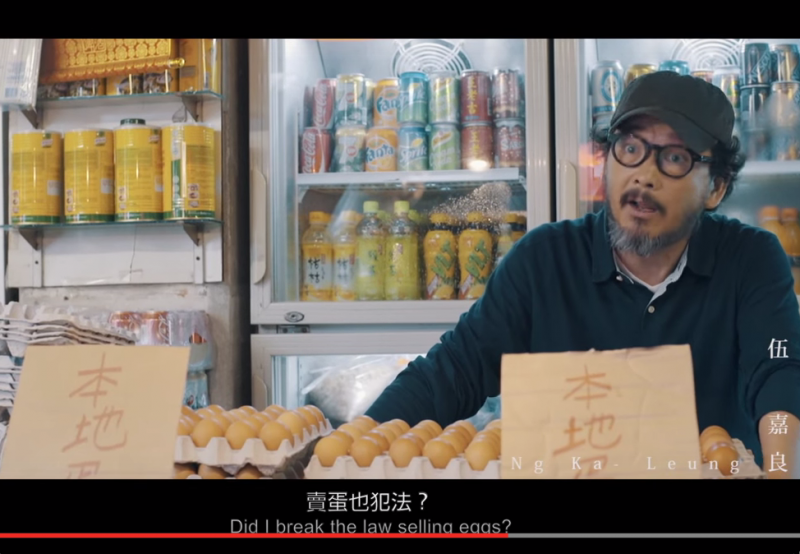This year, mainland Chinese will not be able to watch the 35th annual Hong Kong Film Awards on television or online, all because one independent movie called “Ten Years” was nominated for Best Film of 2015.
The awards, founded in 1982, are one of the most respected events for celebrating the achievements of the Chinese-language film industry. Just like years past, state-owned China Central Television (CCTV) and tech giant Tencent's online TV service would have the broadcasting rights to show the award ceremony to the mainland Chinese audience. However, despite their initial agreements the two suddenly withdrew from airing the event, which is scheduled to take place on April 3.
The organizer of the awards revealed that the Office of Cyberspace Administration of China, headed by Liu Wei, had forbidden the broadcasting of the ceremony in China because officials take issue with nominee “Ten Years”.
Low-budget indie film “Ten Years” is comprised of five episodes, each depicting a dystopian future in Hong Kong in the year 2025 due to the increasing interference of China in city. The movie has been well received in Hong Kong, hailed for capturing popular sentiment there. In fact, it has beaten the latest Star Wars installment at the local box office. Below is the film's’ official trailer (with English subtitles):
One of the episodes in the film, “Self-Immolator”, highlighted in American news channel CNN's review, portrays a mystery person who sets themself aflame in front of the British Embassy. The story is set against the background of the “localist movement” that rejects the mainland Chinese identity imposed upon them after former British colony Hong Kong was returned to China in 1997.
As a special administrative region, Hong Kong is supposed to have a high degree of autonomy from the mainland. But fears abound that China is tightening its grip on the city's relative freedom from Chinese Communist Party rule — and not without merit. At the same time, a strong pro-democracy camp in the city has campaigned for more rights for years. In 2014, thousands joined the Umbrella Protests that occupied downtown Hong Kong for three months, demanding that citizens be allowed to nominate the candidates. As peaceful protests have failed, frustrated “localists” advocate for more confrontational and disruptive strategy to strike for the city's autonomy.
However, Chinese Communist Party mouthpiece Global Times labelled the film a “virus” spreading pessimism and anxiety in the city. Reports revealed that the Hong Kong Film Awards ban is directly associated with the nomination of “Ten Years” for Best Film and that the order came from the very top of the country's propaganda authorities. In addition to ceremony being barred from broadcast, all media outlets have been ordered to avoid any mention of the film.
In response to the ban, the director of “Self-Immolator, Kiwi Chow, told the reporter from online news platform HK01:
這種做法,再一次反映他們對電影的芥蒂,甚至是怯懦。(中央怕電影帶來影響?)我不想給一個答案,但我想帶出一個思考,問所有人,怕這部電影的甚麼?這部電影包含很多觀點與想法,如果我們要與中央溝通,可以嘗試理解,他們到底在怕甚麼。
The way they handled the issue reflects their anxiety towards film [as a medium]. What exactly is Beijing worried about? I don't want to give a direct answer, but I want to throw this question out to everyone: What is so fearful about this film? The film has portrayed different thoughts and perspectives; this can be a starting point for communication and understanding. So what exactly are they afraid of?
Student organizations from 12 local universities and colleges have arranged a screening tour from February to March.
It seems China didn't stop with Hong Kong's awards, either. On February 22, mainland Chinese propaganda authorities reportedly also banned the Taiwanese Golden Horse Film Awards from airing in the mainland, as well.







